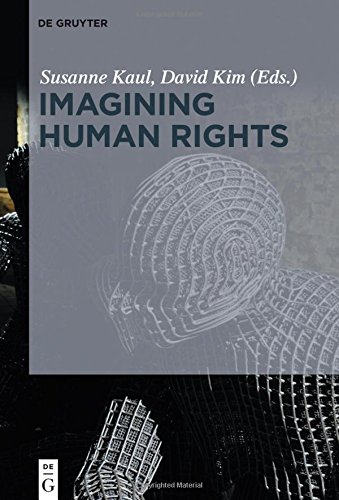
Imagining Human Rights
by Susanne Kaul, David Kim
Publisher: De Gruyter Open Ltd 2015
ISBN/ASIN: 3110376199
Number of pages: 227
Description:
Why are human rights considered inviolable norms of justice although more than hundred countries around the globe violate them? This paradox seems reducible to the discrepancy between idealism and reality in humanitarian affairs, but Imagining Human Rights complicates this picture by offering interdisciplinary perspectives on the imaginary status of human rights on their power and limitation alike.
Download or read it online for free here:
Download link
(multiple formats)
Similar books
 The Human Freedom Index
The Human Freedom Indexby Ian Vasquez, Tanja Porcnik - Fraser Institute
The Human Freedom Index is the most comprehensive measure of freedom ever created for a large number of countries around the globe. It captures the degree to which people are free to enjoy major liberties such as freedom of speech, religion, etc.
(7208 views)
 Freedom from Want: The Human Right to Adequate Food
Freedom from Want: The Human Right to Adequate Foodby George Kent - Georgetown University Press
Worldwide hunger is best addressed as a human rights issue. Kent analyzes the current deplorable state of world hunger and malnutrition, demonstrating how governments, not food shortages or climates or famine, are to blame.
(15859 views)
 Hidden Slaves: Forced Labor in the United States
Hidden Slaves: Forced Labor in the United Statesby Kevin Bales, Laurel Fletcher, Eric Stover - Human Rights Center
Because forced labor is hidden, inhumane, widespread, and criminal, sustained and coordinated efforts by U.S. law enforcement, social service providers, and the general public are needed to expose and eradicate this illicit trade.
(12058 views)
 Tortured Justice: Using Coerced Evidence to Prosecute Terrorist Suspects
Tortured Justice: Using Coerced Evidence to Prosecute Terrorist Suspectsby Deborah Colson, Avi Cover - Human Rights First
The book finds the Bush Administration has undercut its own intended use of the military commission system at Guantanamo Bay by allowing the admission of coerced evidence. The report focuses on six prisoners who have alleged abuse while in custody.
(10152 views)